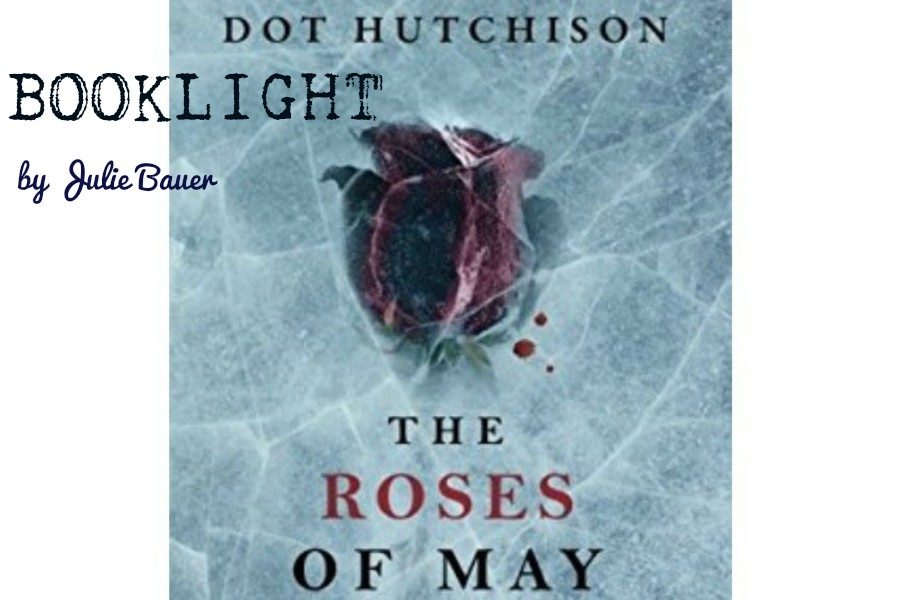BOOKLIGHT: The Roses of May
Booklight was written by Dot Hutchison.
January 26, 2018
The Roses of May is set four months after the events of The Butterfly Garden, in which young women were held captive but finally freed in the end. FBI agents Brandon Eddison, Victor Hanoverian, and Mercedes Ramirez are still attempting the impossible task of helping the survivors and their families heal. Soon, however, they may have another gut-wrenching case on their hands.
Every spring for well over a decade, a young woman has been murdered in church, her throat slit and her body surrounded by flowers. Priya Sravasti’s older sister was murdered by the killer years ago. Priya and her mother shoulder anger and grief not only for their murdered kin, but also for the other girls that have been murdered and their families. When the Sravastis begin to receive flowers delivered to their doorstep, Priya knows that she’s the next victim.
To start, let’s talk about this book in comparison to its predecessor. Judging by user reviews on Goodreads, many fell into the pitfall of expecting Roses to be a direct sequel to The Butterfly Garden. In reality, it’s more of a companion novel: a new plotline, and new protagonists are introduced, and the characters and story from the first novel are pushed to the side. It’s not impossible to read this book as a standalone, but the story will make more sense if you read the first.
The first book, in my opinion, is better than the second. But I also find the argument that the second book of the series should have continued the plot of the first to be weak. Dot Hutchison, the author, probably could not pull much out of the aftermath of The Butterfly Garden, which would involve the surviving butterflies adjusting to the outside. It makes much more sense to allow Priya’s plot line to take over with the butterflies’ woven in.
There is one more thing to consider when comparing the two, and that is the creep-factor of each. The Butterfly Garden is vastly more horrific. Readers who expect to have their stomach churning at every page might find Roses to be dissatisfying. It’s still certainly a suspenseful horror novel, however.
Now, let’s consider Roses alone. There are three different kinds of chapters within: ones in first person from Priya’s point of view, ones in second person from the murderer’s point of view, and ones in third person from the FBI detectives’ point of view. This format adds to the experience of the novel. It could be either interesting or boring, depending on what you like, to read about how the detectives are working through the investigation. The second person chapters from the killer’s point of view are gritty and deeply disturbing. With each chapter in this format, the reader is fed more and more of the killer’s chilling motive.
Just like in The Butterfly Garden, each character is lovable (except the killer, of course) and well-written. The FBI detectives’ protectiveness over Priya is truly heartwarming, albeit a little unrealistic. Both Priya and her mother Deshani are strong, dynamic characters, and it’s nearly impossible not to like them. It’s also worth mentioning diversity: Priya and Deshani are of Indian decent, for example.
Theme comes across very well in Roses. The first major theme is the idea that it’s okay not to be okay. The second has to do with justice. Throughout the novel, Priya and the survivors from The Butterfly Garden attempt to answer: Does true justice involve a murderer being locked up for life, forced to reflect on what they’ve done? Or does true justice see the murderer dead?
One last issue to address is pacing. This book isn’t nonstop thrills; it takes time to stop and fill in details. This will feel like a slow burn to someone who is looking for an action novel. Roses does a great job of building suspense, however. With each flower delivery, the reader knows that Priya is getting closer to the moment that the killer comes for her.
In the end, I can recommend Dot Hutchison’s The Roses of May to anyone who thinks the synopsis or themes sound interesting, or just likes crime investigation stories.






